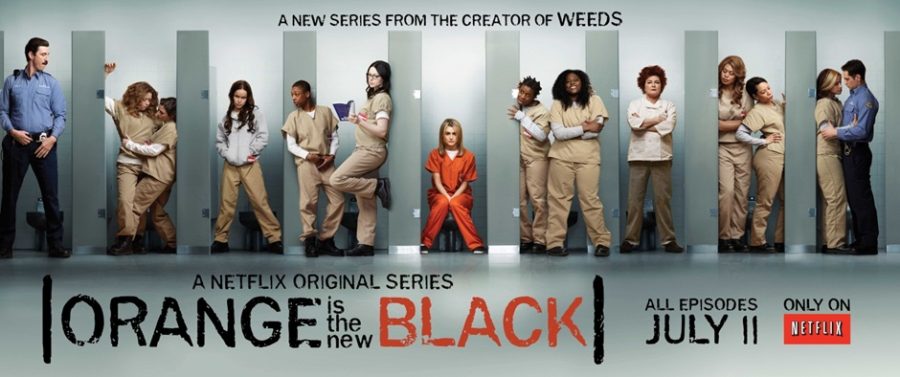Orange Is the New Black: PC Discusses a Netflix Original
February 24, 2014
“‘This is another annoying white girl, and I am so not into this show’ I thought,” said Dr. Emily Taylor concerning her first reaction to the Netflix original series, “Orange is the New Black.” The annoying white girl is Piper Chapman, the generally straight-laced middle-class woman who gets fifteen months of jail time for her brief involvement in an international drug ring during her early twenties, the days of her free-spirited rebellion and sexual experimentation. A few minutes into the show, Dr. Taylor had changed her tune.
“Orange is the New Black,” a popular Netflix obsession since its release last summer, has had everyone talking, including the Presbyterian College community. Last Thursday, Feb. 20, students and staff assembled to discuss various aspects of the show while enjoying Strossner’s pie.
Dr. Taylor and Dr. Molly McGehee moderated the conversation, which was hosted by the Office of Religious Life, and co-sponsored by MACC, the Women’s and Gender Studies Program, and Spectrum. The wide array of groups that supported this program reflects the issues addressed in “Orange is the New Black”—religion, race relations, and sexual identity make the short list.
Netflix originals such as “OITNB” are released uniquely in that entire seasons are released at once, fostering the binge-watch phenomenon. Rather than biting their nails all week in anticipation for the next episode, viewers can be constantly immersed in a series, and, in the case of “OITNB,” subject themselves to each controversial scenario or perspective in rapid-fire style.
“OITNB” has content that is unabashedly controversial. The first episode of “OITNB” shocked tender sensibilities with blatant displays of sexual activity (subsequent episodes are no less adult, but bear the benefit of the initial shock having worn off). The struggles of a transsexual woman are spotlighted, including the process of her gender and sex changes and their effect on her wife and child.
Religion is depicted as having two poles: the corrupt and the genuine, juxtaposed by a nun imprisoned for religious protest and a Christian extremist meth addict. The show is overt in its discussion and visualization of lesbian activity. The prisoners are constantly assaulted with the homophobia and misogyny of the male prison workers.
On top of all that, each show features the background story of at least one prisoner, usually detailing the events leading up to their arrests. These backstories include (but are far from limited to) theft, homelessness, drug abuse, drug trafficking, and murder.
“OITNB” is making waves because it refuses to hint at this content. Instead, it lays the cards on the table for full, honest viewing. In a world where media generally skirts over women’s issues and the issues of the LGBT community, “OITNB” has done something revolutionary.
And so it needs to be talked about.
The first “OITNB” discussion revolved around the first half of season one. Prominent topics were how the format of Netflix originals broadens the show’s impact, the effect of having a female writer and cast, various characters and relationships on the show and the presentation of sex. Discussion especially centered on the concept of Piper as a bridge to other characters (particularly ethnic characters), the way white privilege is scrutinized through her character and the array of racial stereotypes and anti-stereotypes presented in the show.
On Feb. 27, a discussion of the second half of “OITNB” is scheduled for 8:30 p.m. in HP 207. Participants are encouraged to have watched the series in its entirety before this discussion, but all are welcome.
Viewers of “Orange is the New Black” are varied in their reactions, but the reactions are always strong. Come listen to the reactions of others, and, if you feel inclined, share your views. As an incentive for the reluctant, there will be coconut cake.






